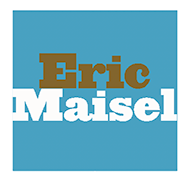
Statistics suggest that of the folks who come to see a life coach or some other coach like a creativity coach, a health coach, or a relationship coach, about 75% are women and 25% are men. In the work that I’ve done over the past forty years, I would say that the percentages are even more weighted toward women, maybe on the order of 90% women, 10% men.
These numbers are different if we’re talking about business coaching, executive coaching, leadership coaching, or performance coaching: that is, coaching that’s tied to work and career. There, men are much more common. But as to life coaching, men are relatively reluctant to cross that threshold.
There are many obvious reasons for this, reasons tied to social conditioning, cultural expectations, and personal perceptions of self-improvement. Many men have been raised with messages that emphasize self-reliance, toughness, and emotional control. Seeking help—whether from a coach, a therapist, or a mentor—can sometimes be perceived as a weakness or as an admission of inadequacy. Traditional masculinity often discourages open discussions about personal struggles, emotions, or vulnerabilities, making men less likely to seek external guidance.
Coaching, like therapy, is also often associated with self-exploration, emotional work, and introspection—areas that some men may feel uncomfortable engaging in. While therapy has increasingly become more normalized for both men and women, there is still a lingering perception that coaching is more suited for women, especially in areas like relationships, emotional well-being, and personal growth.
Additionally, men are often conditioned to approach challenges through problem-solving and action-oriented strategies rather than by seeking support. Many men attempt to work through their struggles alone, believing that they should be able to “figure it out” without assistance. This can make them less likely to reach out to a coach, unless they have exhausted all other options.
And much of the coaching industry, particularly in the personal development space, has been marketed toward women. The language, aesthetics, and testimonials in coaching programs often emphasize themes like introspection, emotional healing, and community support, which may not resonate as strongly with men. By contrast, men tend to respond better to coaching that is framed around goal-setting, performance enhancement, and career success—which is why executive and leadership coaches tend to have a higher percentage of male clients.
Men may also worry about how they will be perceived by others—colleagues, friends, or even their own families—if they seek coaching. There can be concerns that admitting to needing help with relationships, career struggles, or emotional well-being will be seen as a flaw rather than as a strength.
And many men may not even be aware of what life coaching entails or how it could benefit them. Because coaching is more frequently discussed in spaces where women gather (self-improvement groups, wellness communities, online forums), men have less exposure to its potential benefits.
Finally, men are often socialized to prioritize practicality and measurable returns when investing in services. They may view coaching as an intangible or uncertain investment, particularly if they don’t see immediate, concrete results. Programs that focus on direct outcomes, such as leadership coaching, business coaching, or performance coaching, tend to attract more men because they offer clear, results-driven benefits.
Given that coaching can help anyone, men included, and that men are not benefitting from coaching in ways that they might, all of the above suggests that men need to be invited to engage in coaching in ways that resonate for them. One approach would be to use action-oriented, goal-focused language instead of emotional healing language. In fact, this would amount no particular stretch, since coaching is fundamentally action-oriented and goal-focused.
For instance, a relationship coach looking to attract men to her practice might use language like “enhance your relationship decision-making” or “become more effective in relationships,” rather than more “touchy-feely” language. This would serve her—and it would also serve the men who might be in need of relationship help but who haven’t been considering coaching. This would be a win-win for both—and how many things today are win-win?
[If you think you might be interested in becoming a certified relationship coach, please take a look here.]
**
iStock image
Publisher: Source link




